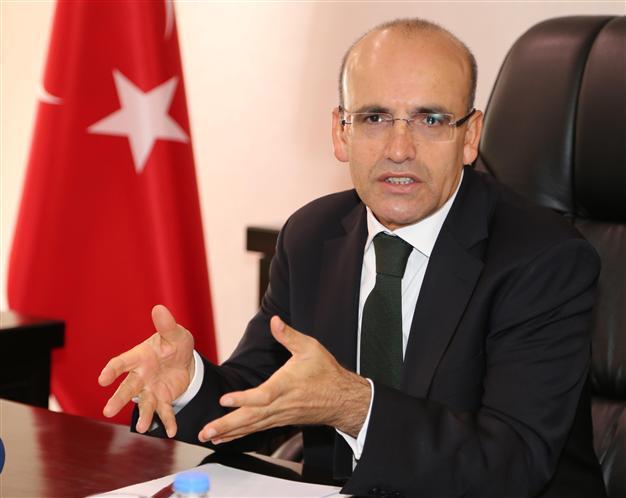More Turkish infrastructure to be privatized: Finance minister
ANKARA – Anadolu Agency

Losses from power leakages have declined and the state’s revenues have increased since the privatization of the grids, Finance Minister Mehmet Şimşek has said. AA Photo
The Turkish government has begun preparing for a fresh round of major privatizations, mainly consisting of national infrastructure, Finance Minister Mehmet Şimşek has said.
The sectors to be privatized include highways, bridges, power plants, ports, a state-run insurance firm and the Erzurum winter sports facility for the short run, Şimşek told Anadolu Agency on Oct. 6.
The income from the privatization of Halk Emeklilik, the pension branch of state-run Halk Bankası, will go directly into the coffers of the state-run bank, he added.
The government will withdraw from many fields in the upcoming period and hand them over to the private sector, which it claims will operate them more effectively and productively.
“Our goal is to maintain more productive operations, create more jobs for our people, build a competitive environment, increase quality and come up with a structure that would benefit everyone,” Şimşek said.
He particularly praised the recent sale of the power grid, saying losses from power leakage losses had declined and the state’s revenues increased due to privatizing the grids.
However, several grid privatizations were canceled before all were sold, due to some of the buyers’ financial problems. The government has also faced similar problems in the gas grid sale, as the process has yet to be completely finalized.
In recent years, the Turkish state has withdrawn from the petrochemicals, iron, steel, alcohol, tobacco and power distribution industries, while reducing its share in a number of others including banking, insurance, telecommunications and air freight.
Şimşek said he had recently discussed privatizations with Prime Minister Ahmet Davutoğlu and the two have decided to totally withdraw the state from lottery games.
Turkey’s Supreme Board of Privatizations approved the privatization of the operating rights of the national lottery, Milli Piyango, to the Net Şans-Hitay consortium for up to 10 years on a revenue-share basis, according to a statement issued in the Official Gazette on Aug. 29. The planned share is 25 percent of the annual revenue from lottery sales after the deduction of value-added tax and 28 percent for other revenues. The national lottery reached over 2.2 billion Turkish Liras in sales revenue in 2012.
Spor-Toto, a sports-based draw still held by the state, and bids on horse races will also be privatized, Şimşek said, adding the state will only take a regulating role in lottery draws.
The sale of 25 sugar factories and five machinery makers are also on the agenda, he added.
A number of real estate agencies and state-owned facilities, including the Güllük Marina in the Aegean province of Muğla, are also set to be offered to local and international investors.
Along with the tenders, the government’s plans to publicly offer the cable TV operations run by Türksat, the transfer of lines owned by the pipeline company Botaş, some 49 percent of the state-owned stake in the Turkish Electricity Transmission Company (TEİAŞ), and the Turkish Petroleum Corporation (TPAO).
The Finance Ministry is currently waiting for a response from the energy minister on the privatization of sulfuric acid and boric acid facilities owned by Eti Maden, Şimşek said.
His ministry is also still working on the controversial privatization of Haydarpaşa, an urban project at the historic Haydarpaşa Train Station on the Anatolian side of Istanbul. The future of the building is still at stake with projections varying from turning it into a hotel and mall, to using the building as part of a railroad system, which is still under redevelopment.
Successive Turkish governments have raked in a total of around $70 billion from privatizations since 1986.
